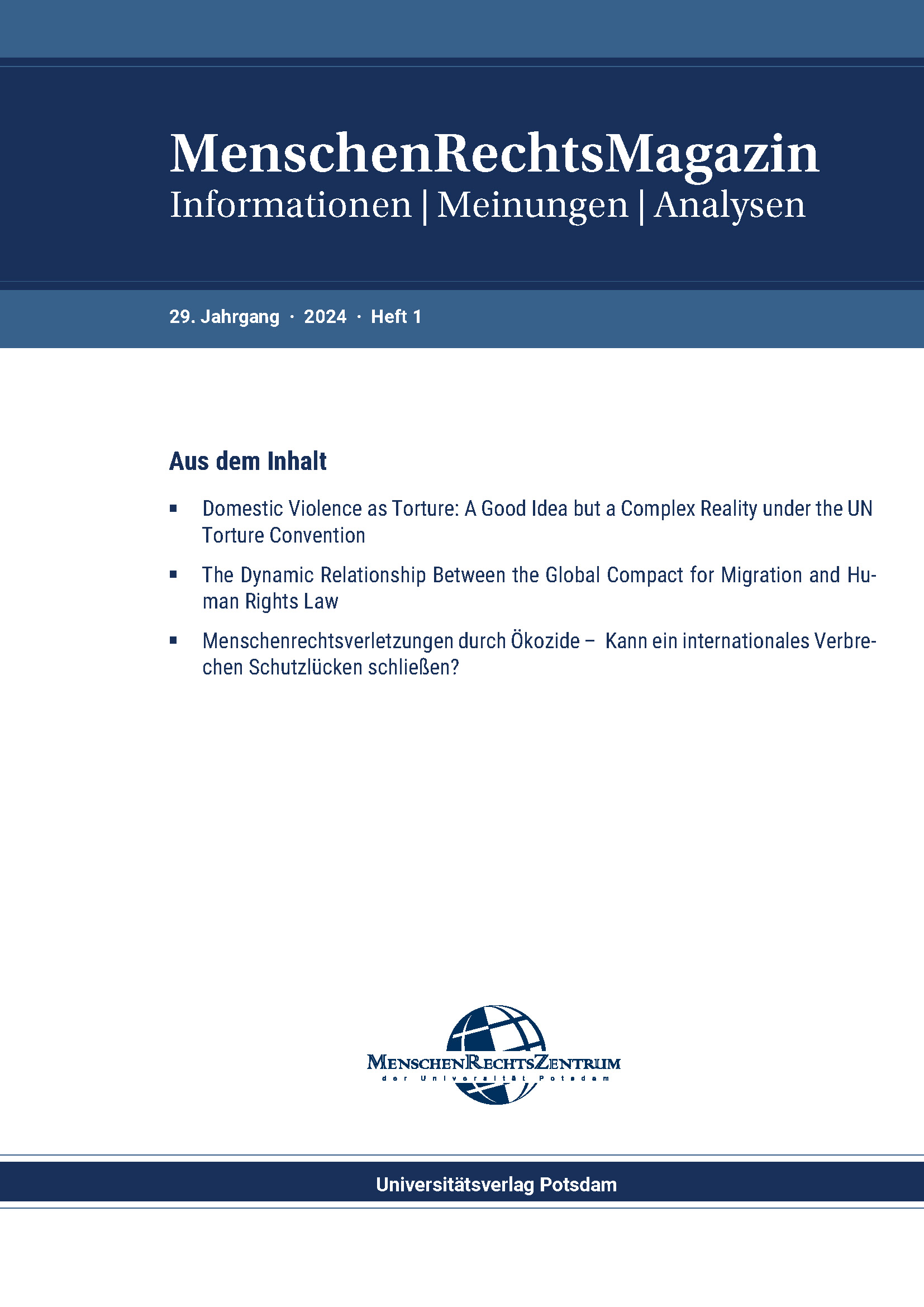Human rights violations caused by ecocide
Can an international crime close protection gaps?
DOI:
https://doi.org/10.60935/mrm2024.29.1.3Keywords:
Ecocide, International Criminal Law, Human Rights, Environmental Law, Environmental Protection, Rome StatuteAbstract
The World Health Organization estimates that at least 250,000 people could die each year from 2030 to 2050 as a result of climate change. With global warming of 1.5 degrees, around 350 million residents of metropolitan areas will suffer from a lack of water by 2050. In recent years, climate change has led to global harvest declines of four to ten percent. In addition, there are extreme weather situations such as floods, storms and earthquakes, which are already threatening the existence of millions of people. According to the International Panel on Climate Change experts, the world is not prepared for the further changes to come. Nevertheless, the containment of the climate crisis and its consequences in politics and the economy is progressing slowly. In the EU, an inadequate compromise had to be found for the end of combustion engines, an agreement is currently being negotiated with the so-called Mercosur states that does not address climate protection or human rights, and this year's COP is once again coming to an end without a clear impetus for action. Climate change is already endangering fundamental human rights. Anyone who intentionally damages or destroys the natural environment destroys livelihoods and thus violates human rights, but has so far not been held accountable for this. That is why there have been calls for ecocide to be recognized as a serious environmental crime in the statute of the international criminal court to close gaps in human rights protection.
Downloads
Published
Issue
Section
License
Copyright (c) 2024 Lina Ebbecke

This work is licensed under a Creative Commons Attribution 4.0 International License.


